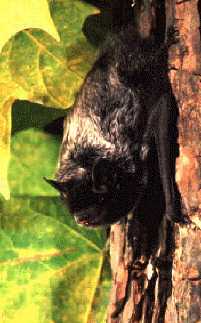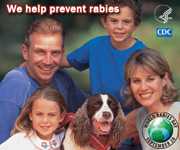Coming in contact with bats
Coming in contact with bats…

Silver-haired bats often roost in tree cavities or in bark crevices on tree trunks, especially during migration. Their unique coloration makes them difficult to find. Most recent human rabies deaths have been due to a strain of rabies associated with this species.
People often know when they ve been bitten by a bat, but most types of bats have very small teeth which may leave marks that disappear quickly.
If you are bitten by a bat — or if infectious material (such as saliva or brain material if it is killed) from a bat gets into your eyes, nose, mouth, or a wound — wash the affected area thoroughly with soap and water and get medical advice immediately. Whenever possible, the bat should be captured and sent to a laboratory for rabies testing.
People can t get rabies just from seeing a bat in an attic, in a cave, at summer camp, or from a distance while it is flying. In addition, people can t get rabies from having contact with bat guano (feces), blood, or urine, or from touching a bat on its fur.
If you think your pet has been bitten by a bat, contact a veterinarian or your health department for assistance immediately and have the bat tested for rabies. Remember to keep vaccinations current for cats, dogs, and other animals.
What if you’re not sure?
If you woke up because a bat landed on you while you were sleeping or if you awakened and found a bat in your room, you should try to safely capture the bat and have it tested. The same precautions should be used if you see a bat in a room with an unattended child, or see a bat near a mentally impaired or intoxicated person.
The small teeth of the bat can make a bite difficult to find. Be safe and in these situations, try to safely capture the bat, have the bat tested, and seek medical advice.
The photos that appear on this site were provided courtesy of Bat Conservation International, Inc. (BCI) and were used with permission. The use of these photos and the shared development of this brochure do not imply endorsement of BCI's views, services, or products by the Public Health Service or the U.S. Department of Health and Human Services.
- Page last reviewed: April 22, 2011
- Page last updated: April 22, 2011
- Content source:





 ShareCompartir
ShareCompartir